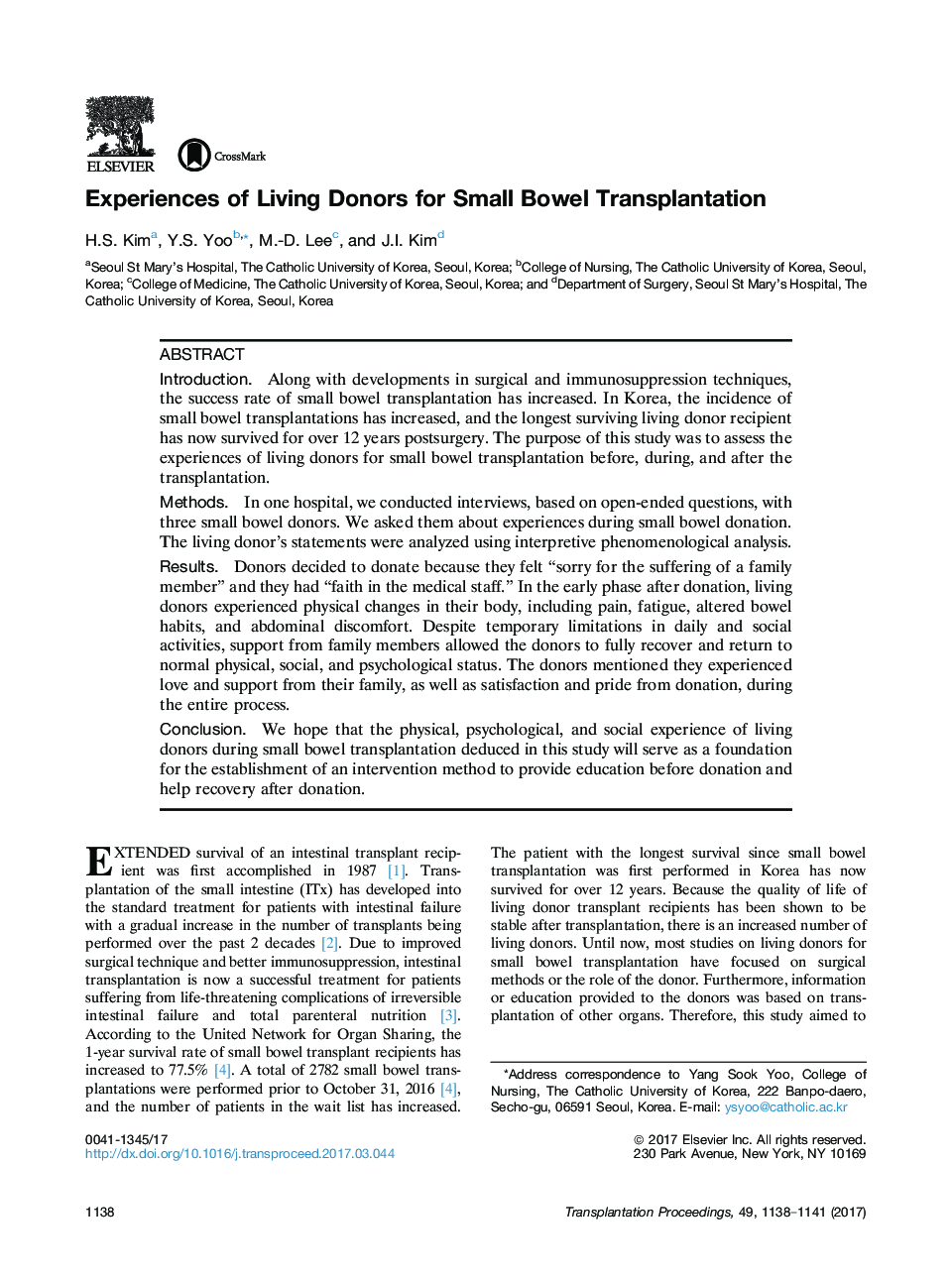| Article ID | Journal | Published Year | Pages | File Type |
|---|---|---|---|---|
| 5728816 | Transplantation Proceedings | 2017 | 4 Pages |
IntroductionAlong with developments in surgical and immunosuppression techniques, the success rate of small bowel transplantation has increased. In Korea, the incidence of small bowel transplantations has increased, and the longest surviving living donor recipient has now survived for over 12 years postsurgery. The purpose of this study was to assess the experiences of living donors for small bowel transplantation before, during, and after the transplantation.MethodsIn one hospital, we conducted interviews, based on open-ended questions, with three small bowel donors. We asked them about experiences during small bowel donation. The living donor's statements were analyzed using interpretive phenomenological analysis.ResultsDonors decided to donate because they felt “sorry for the suffering of a family member” and they had “faith in the medical staff.” In the early phase after donation, living donors experienced physical changes in their body, including pain, fatigue, altered bowel habits, and abdominal discomfort. Despite temporary limitations in daily and social activities, support from family members allowed the donors to fully recover and return to normal physical, social, and psychological status. The donors mentioned they experienced love and support from their family, as well as satisfaction and pride from donation, during the entire process.ConclusionWe hope that the physical, psychological, and social experience of living donors during small bowel transplantation deduced in this study will serve as a foundation for the establishment of an intervention method to provide education before donation and help recovery after donation.
